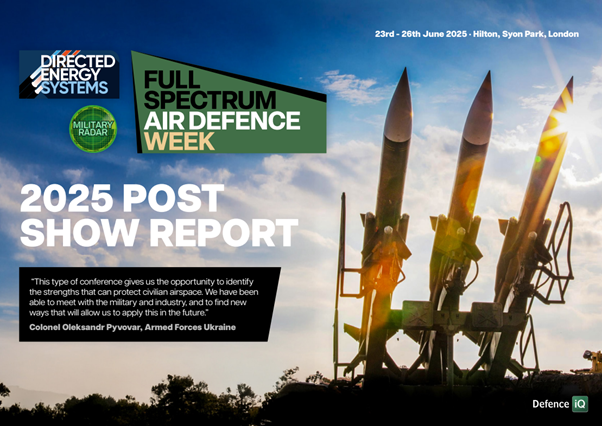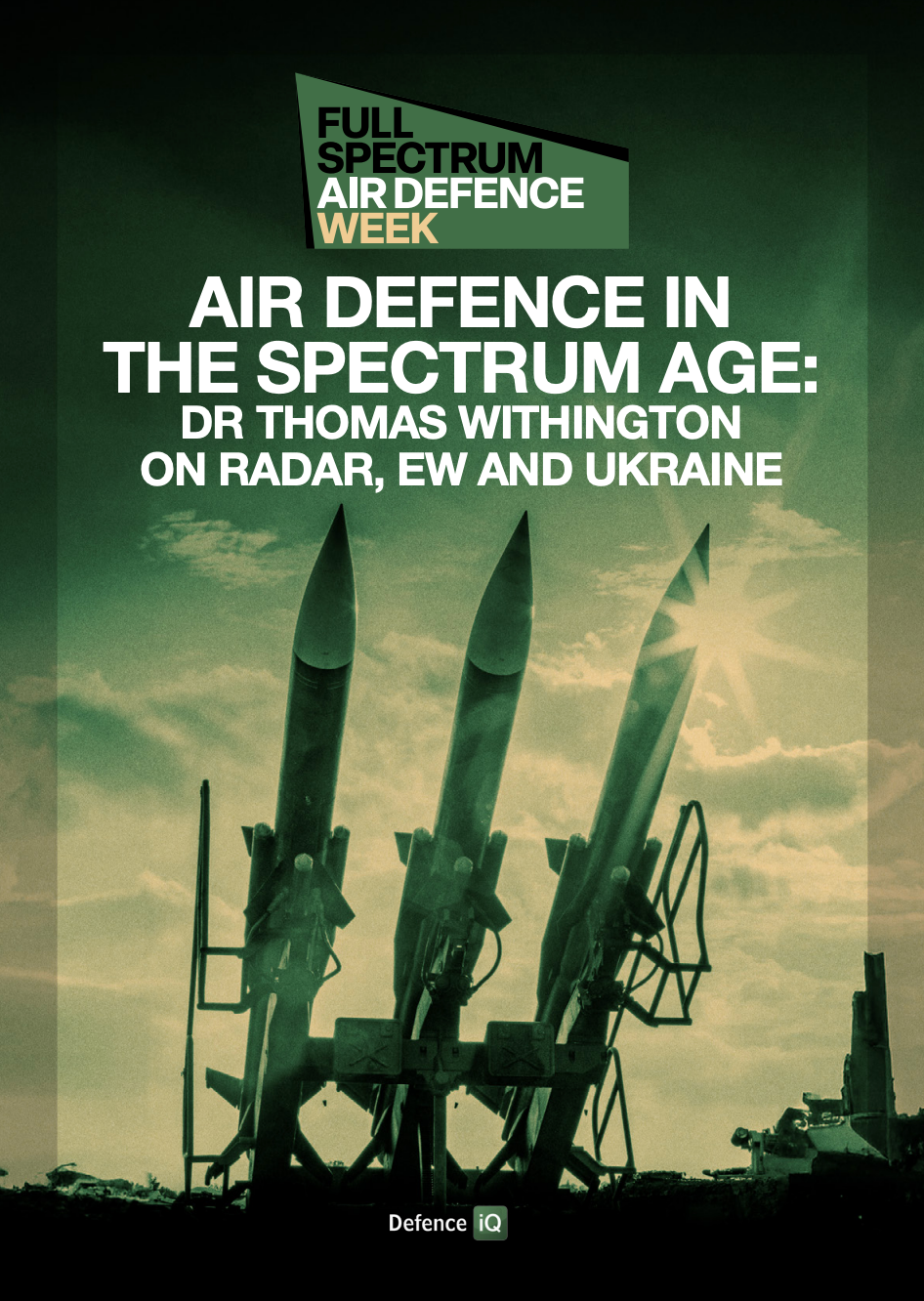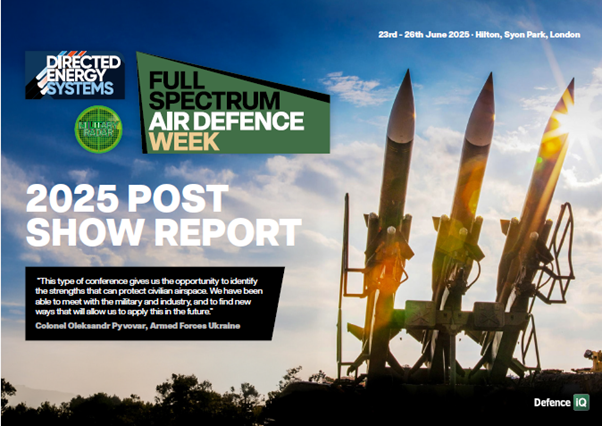Exclusive Content

2025 Post Show Report for Sponsors
The 19th Annual Full Spectrum Air Defence Week, held in June 2025 at Hilton Syon Park, London, brought together 316 participants from 33 nations, including senior military leaders, policymakers, and industry decision-makers.
Across four days of discussion, the community examined how defence forces are adapting to UAS and hypersonic threats, while embracing directed energy, radar modernisation, and layered defence architectures.
The official Post-Show Report provides exclusive insight into the event’s discussions, audience demographics, daily session highlights, and the networking opportunities that made this year’s edition the largest yet.

Air Defence in the Spectrum Age: Dr Thomas Withington on Radar, EW and Ukraine
Modern air defence is no longer defined by platforms alone, but by the ability to sense, connect, and act across the electromagnetic spectrum. Ahead of Full Spectrum Air Defence Week 2026, Dr Thomas Withington shares his perspective on the evolving role of radar, electronic warfare, and C2 in highly contested environments, offering timely insights shaped by recent experience in Ukraine and long-term engagement with the air defence community.

2025 Early Attendee List
We’re excited to share the 2025 Early Attendee List from Full Spectrum Air Defence Week, held 23–26 June 2025 at the Hilton Syon Park, London.
This flagship event brought together leading voices and decision-makers from across the global air defence community to explore the latest innovations, strategies, and operational priorities.
As we look ahead to the 2026 edition, this list offers a glimpse into the calibre of participants who make this event a must-attend for the air defence ecosystem.
👉 View the 2025 attendee list

Brave1's Role in Ukraine's Defence Tech Evolution
In the rapidly evolving landscape of defence technology, Brave1 stands at the forefront, driving innovation and ensuring Ukraine’s technological superiority on the battlefield. In this exclusive interview with Chief Operating Officer, Nataliia Kushnerska, we gain insights into Brave1’s mission, key priorities, and the strategies that have positioned the organisation as a critical player in Ukraine’s defence tech ecosystem.
COO of Brave1, Nataliia Kushnerska took to the stage at Full Spectrum Air Defence Week 2025 to discuss countering the drone threat in Ukraine with limited resources:
- Establishing a C-UAS advantage against adversaries at a time of resource scarcity
- Brave1 rapid development process for countering reconnaissance drones
- Future strategies for anti-drone swarm capabilities, and required industry support to develop rapid solutions and technologies
>> View the full interview now

Full Spectrum Air Defence Week 2025 Post-Show Report
Review the highlights from Full Spectrum Air Defence Week 2025.
Featuring insights such as procurement updates, attendee breakdown, nations in attendance, chairman's summaries and more, this post show report captures key discussions on countering UAS, hypersonic, and cruise missile threats, and the latest advances in radar and directed energy technologies.
![[Exclusive Interview] Exploring the current state of Air Defence with Colonel (Retd.) David Shank, Full Spectrum Air Defence Chairman [Exclusive Interview] Exploring the current state of Air Defence with Colonel (Retd.) David Shank, Full Spectrum Air Defence Chairman](https://eco-cdn.iqpc.com/eco/images/event_content/Ls8KKE9GesDlrTq3OwARFimjOEUCKbA8N4WNLpfS.png)
[Exclusive Interview] Exploring the current state of Air Defence with Colonel (Retd.) David Shank, Full Spectrum Air Defence Chairman
Defence iQ had the pleasure of interviewing Colonel (Retd.) David Shank. The current state of Air Defence is explored, with talks on its current state and future, the developments in Eastern Europe and the refocus on near-peer conflict, David enlightens us on trends and views of this transformation.
The objectives and value of the conference are made clear. Whether you are a veteran of Air Defence, industry, or have a passing curiosity in the world of Air Defence, this interview helps edify your foundations.
Hear valuable insights like that of Colonel (Retd.) David Shank and more at the Full Spectrum Air Defence conference in June.

Full Spectrum Air Defence Week 2025 Attendee List
We are thrilled to share the updated 2025 Attendee List from Full Spectrum Air Defence Week, that took place from 23–26 June 2025 at the Hilton Syon Park, London, UK.
This premier conference continues to bring together the brightest minds and key stakeholders to discuss the latest advancements, strategies, and technologies shaping the future of global air defence.
>> View the 2025 attendee list and attending nations today

Full Spectrum Air Defence: Interview with Zak Kallenborn on the current state of affairs of C-UAS
Drone swarms represent some of the most advanced threats faced on the modern battlefield. Capable of overwhelming defences and causing significant damage, forces worldwide continue to invest in new and innovative Counter UAS technologies.
Zak Kallenborn is a policy fellow at the Schar School of Policy and Government, a Research Affiliate with the Unconventional Weapons and Technology Division of the National Consortium for the Study of Terrorism and Responses to Terrorism (START), and a Senior Consultant at ABS Group. He has provided consultations for offices including the Departments of State, Defense, Commerce, and Homeland Security.
An expert in UAV Swarm technology, operating at the very bleeding edge, Zak Kallenborn gives insights into the latest developments and concepts relating to the threat. From industry to technology, Zak shares his informed views. With his significant experience and specialism, the interview proves useful for end-users, legislators, and suppliers alike.

Contested Skies: Usage of UAS in the Ukrainian War
The war in Ukraine has challenged many assumptions previously held about near-peer competition, one of them being the use and effectiveness of UAS on the battlefield in a near-peer situation. In this unique interview, an undisclosed Ukrainian Airforce representative discusses and analyses the usage of UAS and C-UAS on the contemporary battlefield by both sides, painting a picture of the current state of play. This piece is a must-read for anyone with even a passing interest in full spectrum air defence as it will inform how best to approach future conflict.

Major General Glenn Bramhall on the reintegration of SHORAD capabilities into the manoeuvre force
Air defence capability gaps have become more apparent in recent years with the emergence of Unmanned Aerial Systems on the battlefield, which forced land forces’ commanders to take measures.
Major General Glenn A. Bramhall, Special Assistant to the Director Army National Guard, US National Guard understands well the need for land forces to operate freely without being constantly under threat with no means of defence.

Full Spectrum Air Defence Latest News and Trends
2024 was, without a shadow of a doubt, an incredibly active year for Full Spectrum Defence. A plethora of news on system development, adoption, and deployment was released globally, as well as various statements from national and international bodies edifying their focus on this capability. In preparation for the upcoming Full Spectrum Air Defence Week (FSAD) conference, Defence IQ has gathered some of the most important 2024 news releases from across the air defence sector to increase awareness.
This brand new report includes last year’s air defence news and updates from: NATO, OCCAR, European Defence Agency, Canada, United States, Austria, Bulgaria, Estonia, Finland, France, Italy, Germany, Moldova, Portugal, Poland, Romania, Russia, Slovenia, Spain, Turkey, Ukraine, Armenia, Australia, India, Iran, Iraq, Israel, Japan, Malaysia, Oman, Qatar, Saudi Arabia, Singapore, South Korea, Thailand, UAE, Algeria, Egypt, Ethiopia, Morocco, Nigeria and Sudan.

Air Defence 2025 Interactive Market Report
The Full Spectrum Air Defence Week Interactive Report is a global market report offering key insights into air defence spending across selected countries. Providing a comprehensive view of international investment, this report highlights critical procurement programmes, emerging trends, and strategic priorities shaping the future of air defence.
Designed as an interactive tool, it enables users to analyse regional and global spending patterns, track technological advancements, and understand the evolving landscape of air defence capabilities worldwide.

Beyond the Horizon: Navigating the Future of Military Radar Technology
An effective air defence strategy is mainly reliant on the use of radars. As a domain, radars are locked in a constant game of cat-and-mouse with other technologies and methodologies that try to negate their sensing abilities. This may pose significant challenges to understanding the current state of play. To this end, we were very fortunate to interview Thomas Withington, one of the most recognisable thought leaders in the radar and EW domain. In this interview, he shares his thoughts on the current state of the industry and technology, highlighting the most critical trends in industry and technology.

